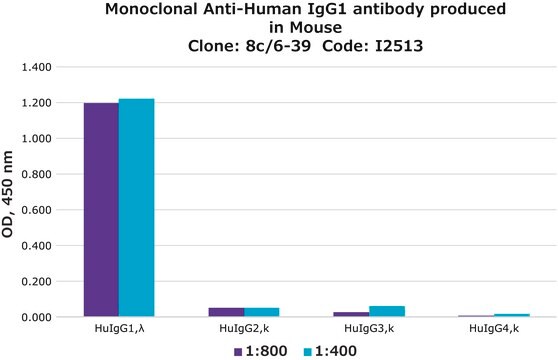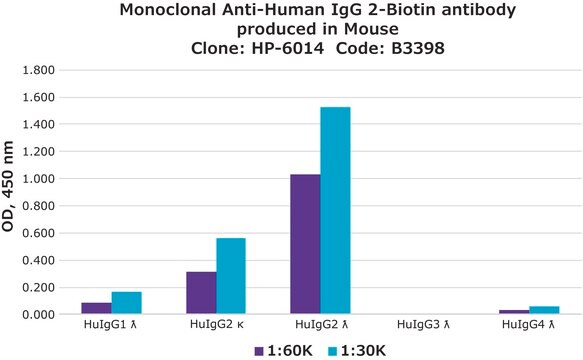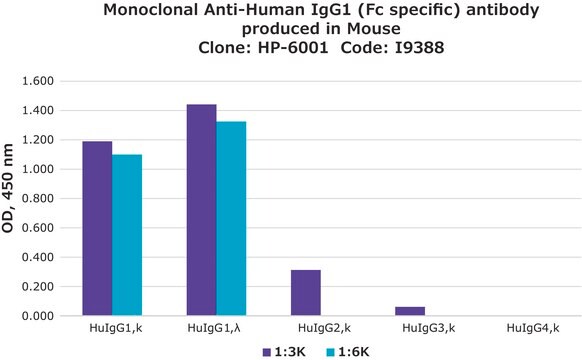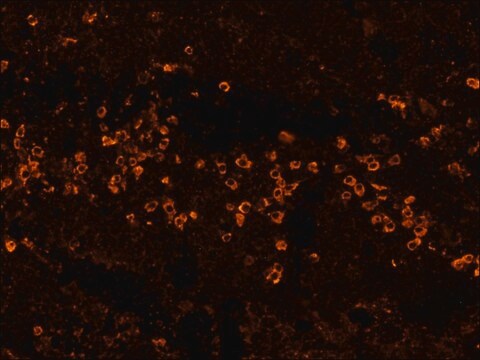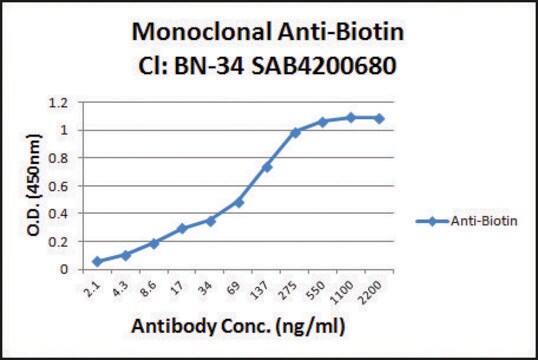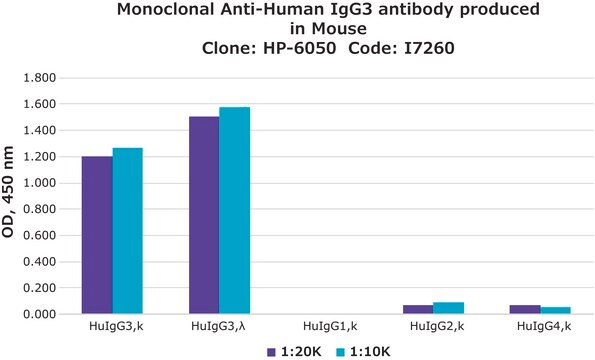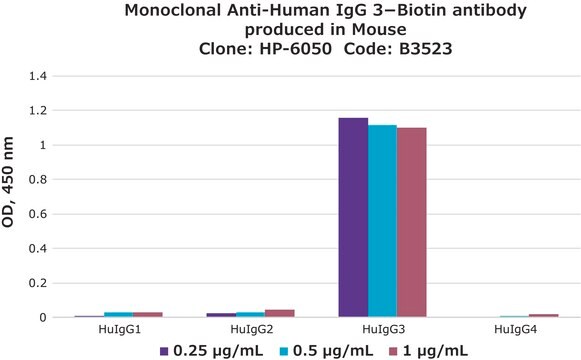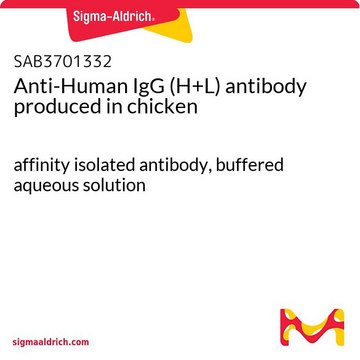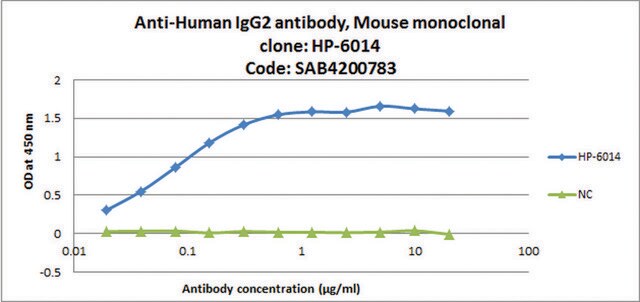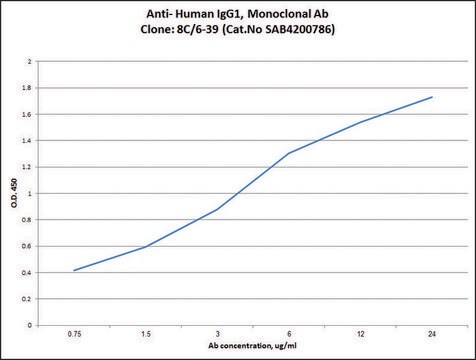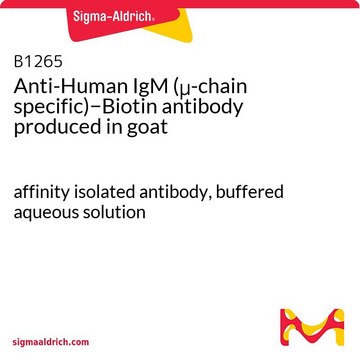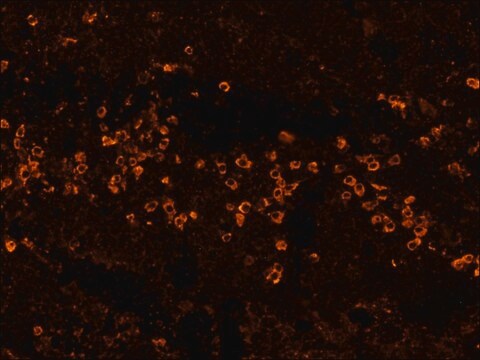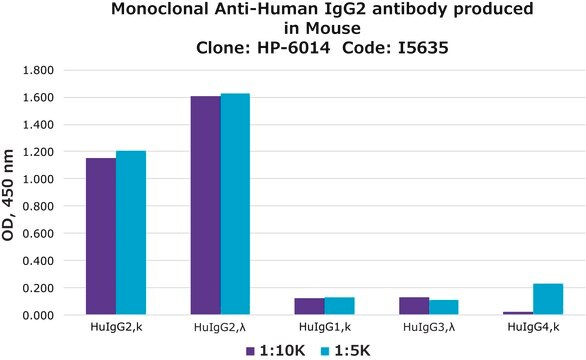B6775
Anti-Human IgG1−Biotin antibody, Mouse monoclonal
clone 8c/6-39, purified from hybridoma cell culture
Synonyme(s) :
Monoclonal Anti-Human IgG1 (Fc specific), Anti Human IgG1 - Monoclonal Anti-Human IgG1-Biotin antibody produced in mouse, Anti Human Igg1
About This Item
Produits recommandés
Source biologique
mouse
Niveau de qualité
Conjugué
biotin conjugate
Forme d'anticorps
purified from hybridoma cell culture
Type de produit anticorps
secondary antibodies
Clone
8c/6-39, monoclonal
Forme
buffered aqueous solution
Technique(s)
direct ELISA: 1:1,000
Isotype
IgG2a
Conditions d'expédition
dry ice
Température de stockage
−20°C
Modification post-traductionnelle de la cible
unmodified
Vous recherchez des produits similaires ? Visite Guide de comparaison des produits
Description générale
Monoclonal Anti-Human IgG1-Biotin antibody is specific for an epitope in the Fc region of the human IgG1. The product does not react with human IgG2, IgG3, or IgG4. This antibody clone (HP6019 clone) has been recognized as a useful human IgG1 specificity standard in the WHO/IUIS study .
Immunogène
Application
Forme physique
Clause de non-responsabilité
Vous ne trouvez pas le bon produit ?
Essayez notre Outil de sélection de produits.
Code de la classe de stockage
10 - Combustible liquids
Classe de danger pour l'eau (WGK)
nwg
Point d'éclair (°F)
Not applicable
Point d'éclair (°C)
Not applicable
Certificats d'analyse (COA)
Recherchez un Certificats d'analyse (COA) en saisissant le numéro de lot du produit. Les numéros de lot figurent sur l'étiquette du produit après les mots "Lot" ou "Batch".
Déjà en possession de ce produit ?
Retrouvez la documentation relative aux produits que vous avez récemment achetés dans la Bibliothèque de documents.
Les clients ont également consulté
Oligodeoxynucleotide Triggers Formation of Anti-CpG
Antibodies
Notre équipe de scientifiques dispose d'une expérience dans tous les secteurs de la recherche, notamment en sciences de la vie, science des matériaux, synthèse chimique, chromatographie, analyse et dans de nombreux autres domaines..
Contacter notre Service technique